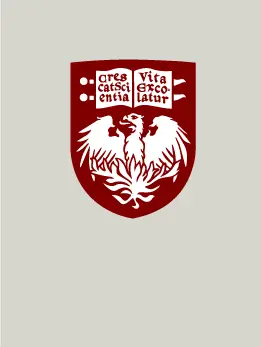Cardiac CT Scan (Computerized Tomography)
When you need a cardiac CT scan, our team at the University of Chicago Medicine can provide the advanced technology and expertise you require for an accurate diagnosis — without the need for other tests like a cardiac catheterization.
With physicians skilled and experienced in diagnosing heart disease, UChicago Medicine is a referral center for other hospitals and physicians seeking expert care.
What is a cardiac CT scan?
A cardiac computed tomography (CT) scan is a noninvasive, painless test that evaluates your heart and surrounding blood vessels to identify any blockages and narrowing of your arteries. A cardiac CT scan can also detect any problems with the pumping function of your heart, which may be a sign of heart disease. Unlike stress tests, a cardiac CT scan can be performed quickly, often in less than 10 minutes.
The two main types of cardiac CT scans are:
- Coronary CT angiograms, which use contrast (dye) to look at arteries of the heart and check for blockages that may require treatment
- Calcium score CT scans, which can check for calcium buildup in the arteries that can provide information on a person’s future heart risks. This test requires minimal radiation and does not need an intravenous (IV) line or contrast dye.
We offer both types of cardiac CT scans at UChicago Medicine.
For appointments and referrals:Call us at 773-702-9461
When do you need a cardiac CT?
Common reasons you might need a cardiac CT include:
- Chest pain and/or suspected coronary artery disease: Cardiac CT angiography is a noninvasive way to determine if chest pain is due to blockages or narrowing of the coronary arteries.
- Inconclusive stress test: If data gathered from a stress test does not provide a clear answer to your health concerns, we may recommend a cardiac CT to look for coronary artery disease, which may allow you to avoid having to undergo an invasive heart catheterization.
- Presence of other heart disease symptoms: If you have chest pain, shortness of breath or neck, jaw, back or arm pain, you may benefit from a cardiac CT to check your heart for possible heart disease.
- Prior to heart surgery or transcatheter procedures: In some cases, CT can be used to evaluate cardiac structures to safely guide planning for complex cardiac procedures.
- Risk prediction: Your provider may recommend a calcium score CT scan to help better understand your risk of future cardiac events and guide preventative treatments.
At UChicago Medicine, our expert team of cardiac imaging experts is skilled at performing cardiac CT scans to diagnose a wide range of conditions, even if your other tests are inconclusive. When you need answers, our team is here to help.
What happens during a cardiac CT scan?
Many hospitals use cardiac CT to identify blockages in the heart, but in many cases CT images alone may be unable to determine whether blockages are significant enough to reduce blood flow through an artery without additional testing.
UChicago Medicine uses fractional flow reserve CT (FFR-CT), which analyzes blood flow through blockages to determine the severity of heart blockages, so you can avoid multiple tests and get answers more quickly.
The entire process usually takes less than an hour. Here is what you can expect during this time:
- Someone will drive you to the hospital. At the hospital, you will change into a gown.
- If you are having a coronary CT angiogram, a nurse will set up an intravenous (IV) line in your arm and inject a special dye (contrast) if you are having a coronary CT angiogram. During the test, the contrast will show the blood flow in your heart arteries and blood vessels and any calcium or plaque buildup that can reduce blood flow. You may notice a metallic taste in your mouth from the contrast. You will not receive an IV or dye if you are having a calcium score test.
- Someone from your care team will place a few small, sticky electrodes on your chest.
- You will lie down on a table, which will move inside a round CT scanner.
- Our team will ask you to hold your breath for short periods of time and hold still while you are in the scanner. This helps us get the clearest 3D images of your heart.
Afterward, you can return home. Your doctor will follow up with the results. If you are having a calcium score test, your results will include a calcium score that reflects the amount of calcified plaque buildup in your arteries. The higher your score, the higher your risks for a possible heart disease.
If your test reveals that you have a moderate to high risk for a heart disease or other heart concerns, our heart specialists can help.
Benefits of Dynamic 3D CT Imaging
This is a dynamic 3D cardiac CT scan of a healthy heart that demonstrates a normal coronary artery anatomy and cardiac systolic function.
Traditional CT scans can determine if you have heart disease based on how quickly blood is flowing through the arteries and veins, but they cannot diagnose the cause of heart disease without additional testing, such as an echocardiogram.
At UChicago Medicine, our cardiac CT team uses a highly advanced scanner that takes several high-quality, 3D images at the lowest-possible radiation dose to recreate a multidimensional image of your beating heart. The 3D scan offers the whole picture of the heart, and it allows us to manipulate the image to see every angle of the heart and explore each functional detail.
Dynamic 3D CT technology allows us study both sides of the heart, measure how strong the heart is pumping, inspect how the heart valves perform, identify possible blockages in the heart and more. Being able to examine a 3D beating heart image for issues, such as coronary artery disease, aortic disorders and structural heart problems, prevents you from undergoing multiple tests to accurately diagnose your condition(s).
This is a dynamic 3D cardiac CT scan of a diseased heart
The 3D cardiac CT reconstruction above is from a UChicago Medicine patient with abnormal calcification (calcium deposits) in the pericardium (sac around the heart). The white ring visible around the beating heart is an abnormality in the heart that prevents the heart from filling and therefore pumping enough blood to the rest of the body.
Preparing for Your Cardiac CT
A cardiac CT is a painless, noninvasive test, but it does require some preparation. Here’s how to prepare:
- Ask someone to drive you to and from the hospital on the day of your test.
- Wear loose clothing and leave your jewelry at home.
- Don’t eat anything for four hours before your CT.
- Drinking water is fine but avoid anything with caffeine for 12 hours before your test.
- Ask your doctor if you should skip any of your medicines before your exam.
- If you have kidney disease, you may need a blood test to determine if receiving contrast during the test is safe for you.
If you have any questions about preparing for a cardiac CT, our team can give you the support you need.
For appointments and referrals:Call us at 773-702-9461
Frequently Asked Questions About Cardiac CT Scans
A cardiac CT scan is a noninvasive test that shows 3D images of the heart and blood vessels to check for plaque buildup and blockages that determine your risk for heart disease. It can also detect problems with the structure and function of your heart chambers, valves and blood vessels.
Your doctor might recommend a cardiac CT if you have symptoms such as:
- Chest pain
- Shortness of breath
- Pain in your neck, jaw, back or arm
Your doctor might also suggest a cardiac CT if you had an inconclusive stress test. A cardiac CT can give your care team more information about your heart. Cardiac CT scans can also help your team plan for future procedures, such as heart surgery.
At UChicago Medicine, our team uses advanced cardiac CT technology to help you get an accurate diagnosis and develop the best plan for your treatment.
Meet Our Cardiac CT Team
Cardiac CT at UChicago Medicine
Request an Appointment
We are currently experiencing a high volume of inquiries, leading to delayed response times. For faster assistance, please call 1-773-702-9461 to schedule your appointment.
If you have symptoms of an urgent nature, please call your doctor or go to the emergency room immediately.
* Indicates required field





